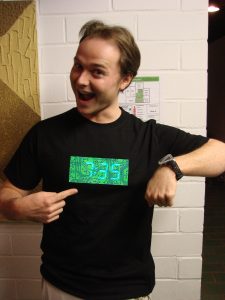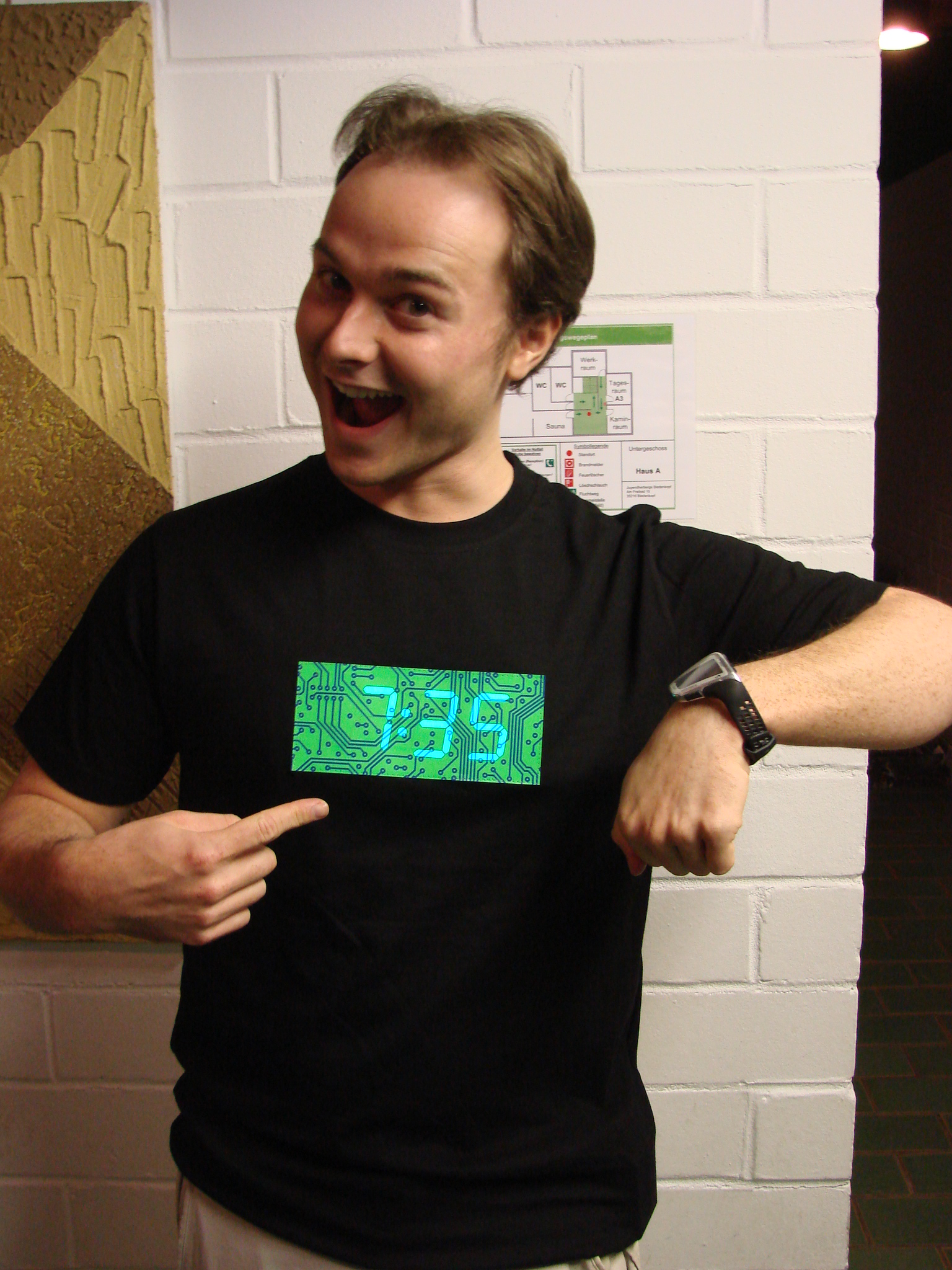How to make time if you are too busy

There are lots of excuses people make for not progressing in a language; I'm not smart enough, it's too hard, I can't remember any words, etc. But the one I'll almost always hear is I don't have any time.
Time is a funny thing. It can fly, run out, and be up. It can be spent, killed, and passed. It will tell and it is money. With all of these amazing things time does, people never seem to actually have any of it!! People seem to think that if you get more done in a day, you simply have more “free” time than they do. In my case for trying to learn a language in just 3 months, maybe I just won the lottery and have plenty of money (and thus time) to do nothing but study and practise it. That can be the only possible explanation…
Everybody's busy
Believe it or not, I've also got enough excuses for why I wouldn't have “enough time”. I work full time, I have an active social life, which here in Prague has actually mostly been in French and Portuguese, not Czech. I have a lot of side projects that take up so much time like improving these other languages and making videos. The video I just made about learning Italian needed to be edited, I had to write posts about it, and of course… I translated it to 5 languages after English. That took time!! I also maintain this site; writing about two posts a week, and spend several hours a day online.
Then there's all the normal other things; eating, sleeping, travel time, grocery shopping, walking, shower etc. Other people have much better “excuses” than I do; they have a family to take care of, a more-than-full-time job and other responsibilities etc. Surely there's no hope for any of us to do anything as crazy as learning another language??
Don't be silly! Of course you have time!! Lack of time is just another excuse. No matter how busy you are, how much you work or socialise or devote your time to other important projects in your life… you always still have some time left over that you may be currently wasting!
Kill the time killers
The easiest way to get back huge chunks of time is to eliminate pointless activities from your life. I used to watch an incredible amount of TV or play way too many computer games (at least 3 hours a day). It never enriched my life or made me feel better. It was just a way to pass the time; it was “relaxing” after a hard day. Once I cut out watching TV entirely and deleted all games from my computer (when I moved to Spain), this gave me the time needed to actually do something useful and feel a sense of achievement every day, which makes me feel much better than relaxing ever did. There are so many things that people do that are actually just wasting time, but they are in a comfortable routine with them.
It's important to look at everything you do on a regular basis and ask yourself if that really makes your life better? Do you really need to follow every match of your favourite football team? What if you went out with your buddies for a beer just once a week instead of 3 times? There are even some people who “outsource” as many tasks as possible (like doing the laundry, shopping and even most of their work), but I haven't tried this yet. There are plenty of sites with information about getting things done (or “GTD” as it's referred to) and being more efficient with your time, and lots of self-help books go into that too, so I can't claim to be much of an expert! But this is an area of a lot of people's lives that could be improved.
However, when it comes to learning languages, even when you claim to have cut out all of the time wasting activities in your life and are still too busy, there is still hope for you to get lots done!
How to squeeze time out of every free second: How I actually study a language
As I've said before, I don't have the patience to sit down at a desk with a lamp and a big grammar book, highlighter pen and dictionary and actually study. This may work for some people (and can be very useful as long as you combine it with actually speaking a language), but it has never worked for me. And as I said above, I fill my day up quite quickly, so I technically wouldn't “have time” to study like that. So let me tell you about a “typical” study day for me. For some good examples, I'll tell you how I spent… my birthday!
Sadly, it wasn't entirely a day off; I had to work in the morning, but took the afternoon off. The Internet slows down so much in this flat (I need the Internet to be able work) so when a page is slow to load, I could do what most people would; curse it and get angry and stressed out, or maybe simply do nothing and be patient (not my strongpoint 😛 ). But when a page doesn't open immediately, I just glance at the sheet of irregular verbs on the table beside my computer and go through one new verb. The website loads and I go back to work. Next time that it is slow to load I glance over at the next word and try to apply it to memory. After an intensive morning work period I've actually learned over 20 of the most important irregular verb past-tenses and parts of their conjugations.
Work is done, so I join a friend for lunch. We sit down and have a nice chat (in French!) but when she goes to the toilet, I could twiddle my thumbs or glance around or play with my phone… but instead I grab the bilingual menu and study some food vocabulary. I get the tram back home and as soon as I sit down, I take a photocopied sheet of important adjective opposite pairs out of my pocket and study for the “entire” 5 minute journey.
Later in the day it's time to go out dancing! My friends go into the club before me, so when I'm in the queue by myself, I take out my phrasebook to study the small dictionary at the back. A girl beside me keeps looking at me and my phrasebook (not something people usually read in queues to nightclubs… if people were to actually read anything in such a situation…), so I start up a conversation with her and get to practise! She found my Czech quite amusing, but listened attentively and helped me say what I wanted. I soon had 4 of her friends listening to me and giggling as I was talking. Likely laughing at my many mistakes and silly way of speaking, but all listening to me attentively and even correcting me. Once they saw me dance they laughed much more…
Afterwards, it's a 10 minute walk back to the night tram so I turn to particularly tricky words in the phrasebook and have a quick glance and put it back in my pocket as I think of a good detailed image association for that word… while I'm walking.
At the end of the day I've actually learned quite a lot, even though I wasn't actually really “studying”. I had an excellent birthday, it was so much fun – I barely even remember actually studying, but I must have done the equivalent of maybe 1-2 hours of sitting down at a desk and in that day I did indeed learn some very important parts of Czech. I even got to practise!
Everyone has loads of free time, but they don't realize it!
Everyone has time to study. If you ever get in a queue (or line for any American readers) for even 30 seconds then you can learn something if you have any kind of pocketbook or a simple photocopy of a difficult page of grammar in your pocket. If you are driving your car to work then you can put on the CD course. If you are waiting for friends outside a building, or waiting to use a public toilet, or waiting for the next bus, or waiting in the bus, then what do you actually do?
People waste time when they are waiting. Looking around, sending an unimportant text message, reading advertisements, or more often just simply being frustrated that they have to wait. Instead of this waiting being a waste of your time, it can be your study time! All of these little pieces of 30 seconds and 5 minutes add up to several hours each week that you can utilise! Studying a single word, or even a couple, is ideal for compressed time periods like that. You can also study parts of grammar tables. You may need to be in a quite comfortable environment to get some “important” study done, but the bulk of memorising and revising can be done on the move!



Social